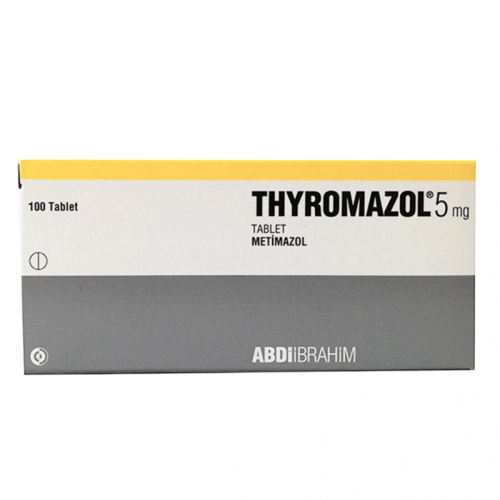CLASSIFICATION
Antithyroid Hormones
ACNE
No
WATER RETENTION
No
HBR
No
HEPATOTOXICITY
No
AROMATIZATION
No
MANUFACTURER
Abdi Ibrahim
WAREHOUSE
International Warehouse 2
SUBSTANCE
Methimazole
,
Methimazole is a medication used for managing hyperthyroidism, a condition characterized by excessive production of thyroid hormones by the thyroid gland. Additionally, it may be prescribed before thyroid surgery to reduce hormone levels and mitigate the effects of thyroid manipulation. In veterinary medicine, methimazole is also employed to treat hyperthyroidism in cats.
Mechanism of Action:Methimazole works by inhibiting the enzyme thyroperoxidase, which plays a crucial role in the synthesis of thyroid hormones by converting iodide ions (I-) into iodine (I0). This process is essential for the incorporation of iodine into tyrosine residues on the hormone precursor thyroglobulin, which is necessary for the production of triiodothyronine (T3) and thyroxine (T4). However, methimazole does not interfere with the sodium-dependent iodide transporter found on the basolateral membranes of follicular cells; this inhibition would require the use of competitive inhibitors like perchlorate and thiocyanate. It acts at the site of CXCL10.
Adverse Effects:While using methimazole, it is crucial to monitor for symptoms such as fever or sore throat, as these can indicate the onset of agranulocytosis, a rare but serious side effect associated with a reduction in white blood cell count, specifically neutropenia (a lack of neutrophils). A complete blood count (CBC) with differential is necessary to verify this condition, at which point the drug should be discontinued. The administration of recombinant human granulocyte colony-stimulating factor (rhG-CSF) may aid in recovery.
Other potential side effects include:
Individuals who may experience adverse effects include those who:

